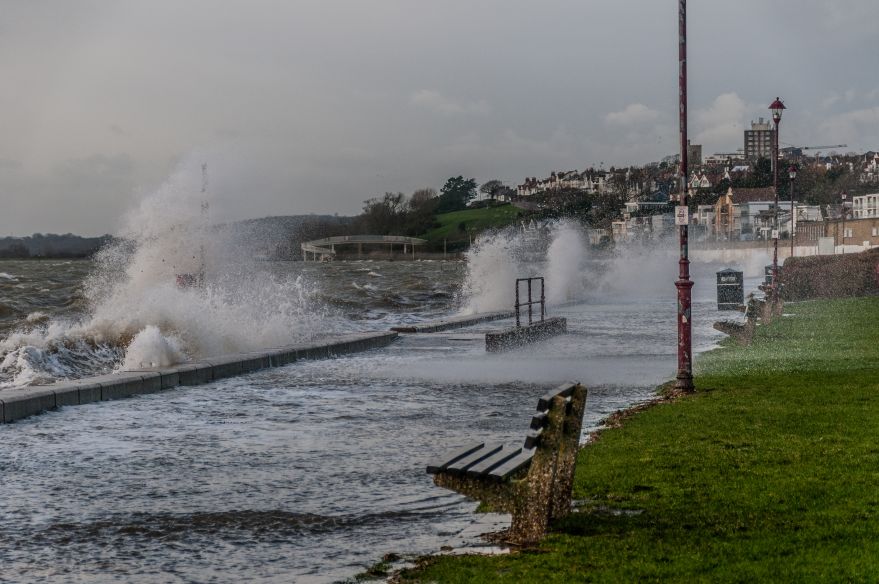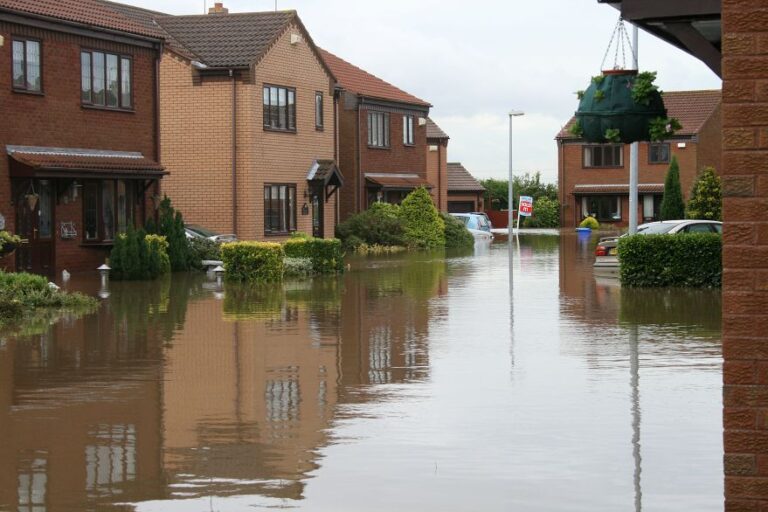More than six million homes and businesses in England are now in flood-risk areas – and many people don’t even know it.
That’s according to the latest Environment Agency data, which shows a sharp rise from 5.5 million in 2018 to 6.3 million today. The increase is partly down to better mapping – now accurate to within two metres – but also reflects a changing climate and new developments being built in high-risk zones.
And it’s not stopping there. The number of properties at risk from rivers, the sea or surface water is expected to hit eight million by the middle of the century – that’s around one in four homes and businesses.
So, what does that mean for you? And more importantly – would your insurance actually pay out if the worst happened?
Storms are on the increase – but is your cover keeping up?
After a string of named storms last winter – and Storm Amy already making headlines – experts are warning against complacency. Even after a dry summer, the risk of flooding hasn’t gone away.
But here’s the kicker: while extreme weather is on the rise, some insurers are quietly narrowing what counts as a ‘storm’ or a ‘flood’. That means some claims could be turned down, even when customers thought they were covered.

Consumer group Which? reviewed 133 policy documents from 67 insurers and found that:
- 32% had a potentially unfair definition of ‘flood’
- 20% had a potentially unfair definition of ‘storm’
In some cases, insurers only covered damage caused by high winds – not heavy rain, hail or snow. Others excluded flooding unless water entered the home “suddenly” or “rapidly” – ignoring the kind of slow-build water damage that’s increasingly common.
So, what actually counts as a storm or flood?
It’s not as simple as it sounds.
The Met Office says a storm can mean different things to different people – from high winds to heavy rain, hail or snow. Flooding is just as tricky. It might be caused by a river bursting its banks, a blocked drain, or even a burst water main. It might happen in a flash or build up slowly over time.
But many insurance policies don’t reflect that complexity. Instead, some rely on narrow definitions that can leave homeowners exposed.
For example:
- Some policies only cover flooding if water enters the home “suddenly” – not if it seeps in gradually.
- Others exclude water damage unless it comes from outside the building – not from a pipe or drain inside.
- Over half of the policies with unfair ‘storm’ definitions only cover damage caused by high winds.
The good news? There’s guidance and support out there
Of course, not all insurers take this approach. The Association of British Insurers (ABI), the Financial Ombudsman Service (FOS), and the government-backed Flood Re scheme all use definitions that are more in line with what customers expect.

For instance:
- The ABI and FOS define a storm as any extreme weather event – not just high winds.
- Flood Re defines a flood as water entering a building from any external source, with “substantial and abnormal” volume, weight or force.
- The FOS also makes it clear that a flood doesn’t have to be sudden or violent – it can happen slowly, and still count.
How a broker, like Howden, can help you stay protected
When the weather turns, the last thing you want is a nasty surprise. If you’re not sure whether your home or business is in a flood-risk area – or whether your current insurance would cover you – we’re here to help.
As a broker, we work for you. That means we’ll dig into the detail, explain the small print, and flag any gaps that could catch you out. We know how different insurers define floods and storms, and we’ll help you find cover that reflects the real risks you face.
And because we have access to a wide range of insurers – and built strong relationships with them – we can do the heavy lifting for you. So, there’s no need to get bogged down comparing policies or decoding definitions.
Whether your property’s in a flood-risk zone or you’re just not sure what your current policy includes, we’ll take the time to listen, advise, and tailor your protection.
Pop into your local Howden branch or give us a call. We’re here to help, however suits you best!
Sources: Which?, GOV.UK
You could also read:
- The UK towns where you’re most likely to pass your theory test
- Garden builds & boundary battles: what’s allowed
- Britain’s car thieves have a new target
- Rental laws are changing – landlords, are you covered?
- What the Bank of England base rate cut means for you
This is a marketing blog by Howden Insurance.

